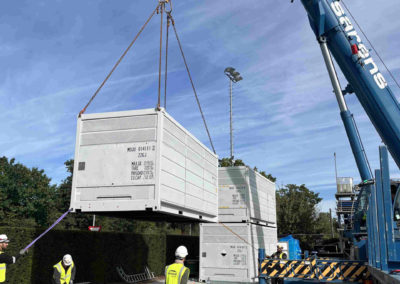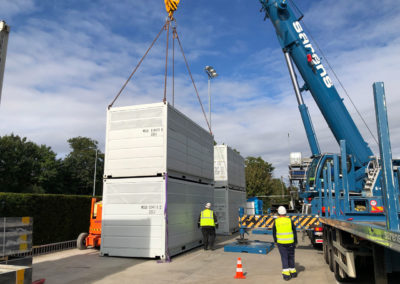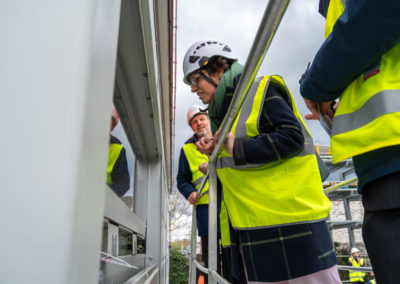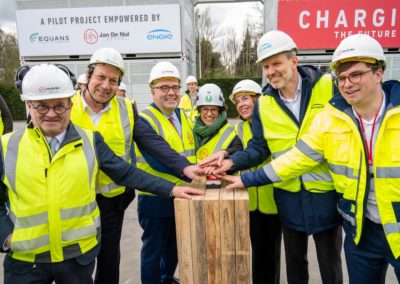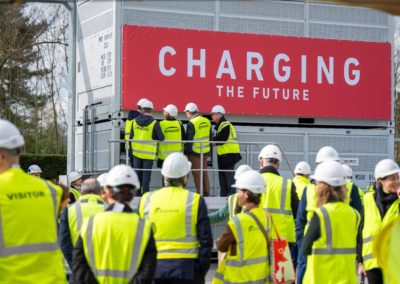Engie / Equans / Jan De Nul
Invinity has delivered a 0.8 MWh VS3 vanadium flow battery system to Engie, Equans and Jan de Nul for a jointly developed solar + storage project. Find out more in the case study below.
Proving the benefits of VFBs for the transition to 100% renewables
In the transition to a net zero economy, it is not only energy grids who are looking to better integrate renewable power into their systems. Companies which have high energy usage, and therefore high energy bills and emissions, are deploying their own clean energy generation to reduce their environmental impact and financial burden. However, whilst this new capacity is generally able to cover a business’ energy usage, the excess is increasingly being curtailed as the grid cannot accept it. As such, many are now looking to deploy batteries because they are a recognised solution for maximising the benefits of localised clean energy generation.
The Brief
Energy storage is recognised as the missing piece of the net zero transition puzzle. Engie, Equans and Jan de Nul together formed a partnership to install and run an industrial scale solar + storage project to see how energy storage enables them to maximise their use of their own on-site renewable generated electricity. The partnership specified that the project would use vanadium flow batteries due to their inherent safety, duration, and lifetime as well as their ability to be placed in an urban location. In addition, JDN are increasing their use of electric vehicles and electrified heating/cooling in their operations and they need a battery system to better manage their onsite generated electricity.
Engie has carried out extensive research into vanadium flow batteries and is keen to deploy them at larger scale. In the partnership, Engie provided the backing for the project with the location being provided by Jan de Nul (at their headquarters), and Equans being the EPC. Equans, who are part of Bouygues Group and who designs, installs and provides customised energy solutions, selected and contracted Invinity to supply a vanadium flow battery system for this project.
Roof-mounted
VS3
Facility powered by up to
renewable electricity
The battery will be used primarily for Solar Shifting, which means the battery will store excess solar generation during the daytime and discharge once the sun has set so that the site will continue to operate on clean solar energy (see chart below).
Solar shifting
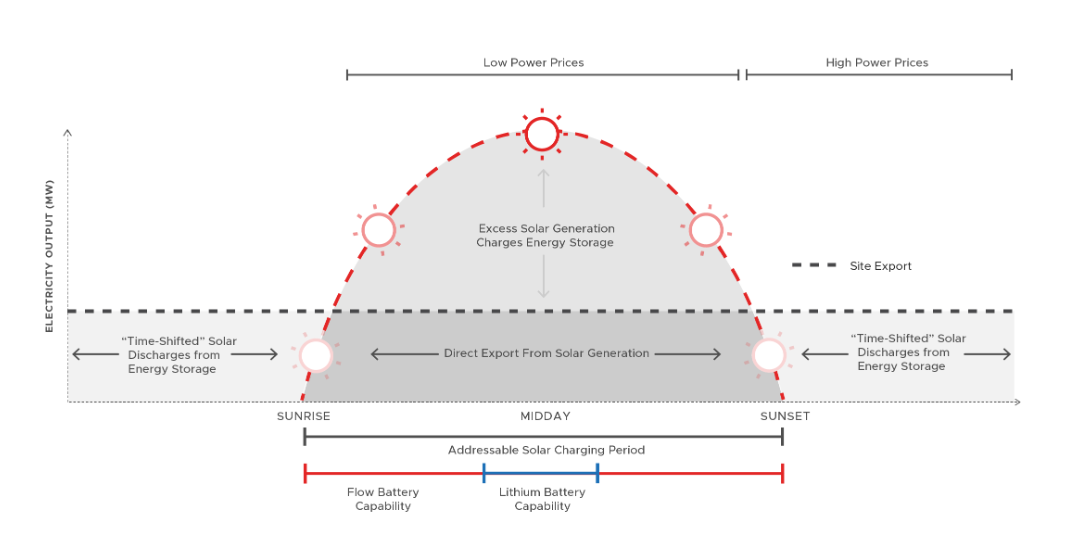
The Invinity VS3 vanadium flow battery will also be used to support the operation of existing EV charging infrastructure on site.
Safe
No fire risk – the electrolyte is a water-based solution
Economical
Low cost per MWh on a Levelized Cost of Storage (LCOS) basis. Fully recyclable.
Long Life
Unlimited daily cycles – over 20 years of continuous operation
The Result
Delivery and installation of the battery system was completed in 2023. The system was double stacked so that it could fit into the available space.
On 27 March 2024, the battery was inaugurated by the CEOs of the three partners from ENGIE, Equans BeLux and Jan De Nul in the presence of the Belgian Energy Minister Tinne Van der Straeten.
Maximising renewable energy use and decarbonising – how Belgium can have both
Europe is now steadily generating more of its electricity from renewables than ever before, driven by the rapid deployment of wind and solar assets, a drastic reduction of coal use (see chart) and the shift away from using Russian gas.
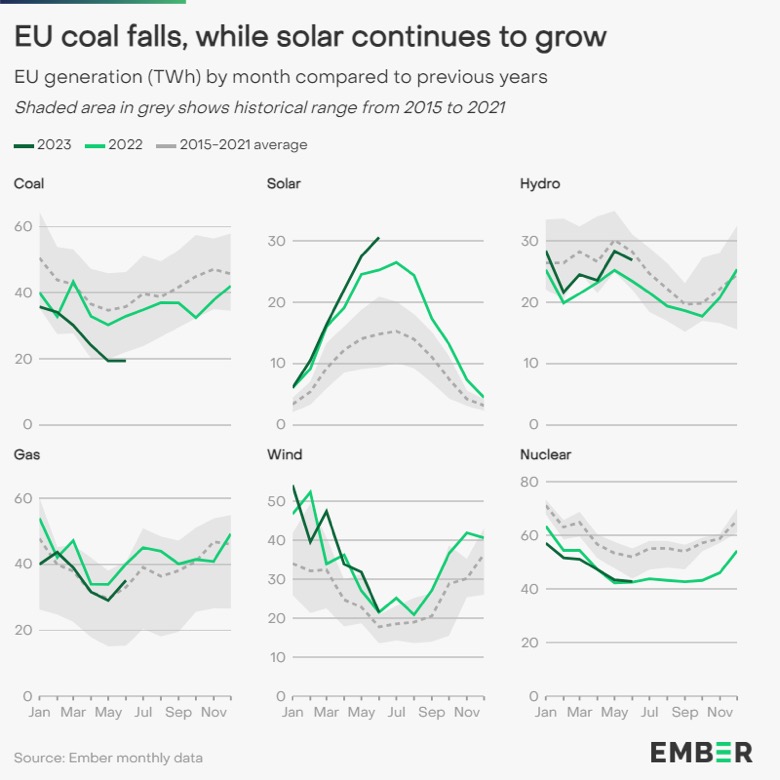
Solar PV installations in Belgium in 2023 reached a record of 1.8 GW, up from 1 GW in 2022 and 0.8 GW in 2021, driven by the rise in energy prices caused by the energy crisis of 2021/2022 and the need to accelerate decarbonisation.
The country’s renewable energy base is growing rapidly:
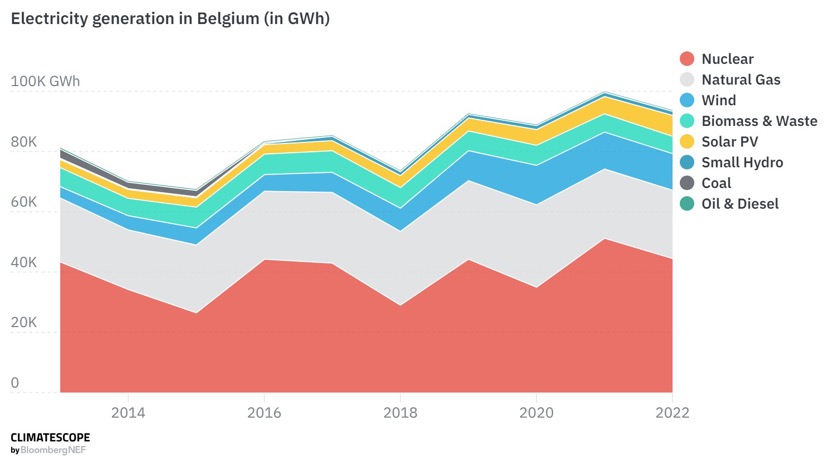
and as electricity demand continues to rise, the need to decarbonise the country’s grid means there is a growing need for it to come from clean sources such as wind and solar.
Industry remains the highest user of electricity in Belgium at around 47% (source: https://www.iea.org/countries/belgium/electricity):
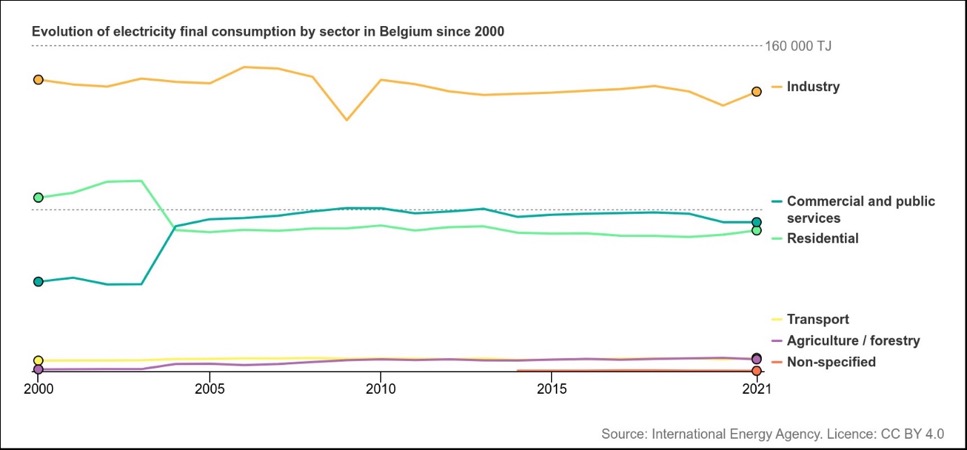
A McKinsey report in 2023 outlined that in order for Belgium to decarbonise, its power sector would need to phase out most traditional fossil power sources and “build up locally produced and imported green electricity to replace them”. The modelled net zero pathway in this study forecast that Belgium would see “decreased energy imports from about 98% in 2019 to 55% in 2050” and that the variability of this renewables based system would need significant energy storage to support it.
The transition to 100% renewable electricity not only goes a long way to reducing energy costs for businesses, but it will further help to accelerate wider decarbonisation across the local grid and provide greater energy security for the country as a whole. By installing flexible and safe energy storage such as vanadium flow batteries, densely populated countries like Belgium can take advantage of the switch to renewable energy production with an asset that is future-proofed to help with decarbonisation and cope with the ever changing nature of electricity generation.
Partners
Interested in Finding Out More?
If you’re a utility, developer, EPC, or financier please contact our commercial team to discuss the details of your project. We work with you to develop a robust business case and financial model.
